Graham Reid | | 24 min read
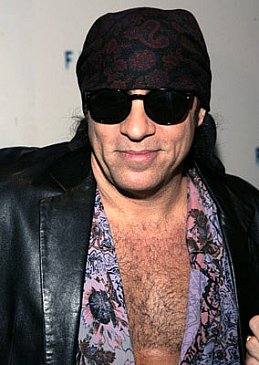
Silvio Dante, Tony Soprano's loyal soldier and owner of the famous Bada Bing strip club, is in the lobby bar of a Sydney hotel and, as you might expect, a lot of people are looking at him.
Menacing and permanently pouting, Silvio wears silk shirts, loud ties, great suits and gold chains. And that hat of motionless black hair which gives even the most ill-fitting wigs a good name. But on this day the silk shirts and flashiness aren't in evidence. Instead of the wig, on his head is a gypsy bandanna.
This is Silvio in real life, the equally distinctive Steven Van Zandt: Soprano's actor, record producer, and most visibly guitarist in Bruce Springsteen's E Street Band. Van Zandt -- formerly Miami Steve, Little Steven, Stevie to longtime friends -- is attracting as much attention as Silvio might, but for very different attire.
He is wearing typically Stevie hand-me-down psychedelic-pirate clothes: a loose-fitting paisley shirt which reveals acres of tanned and hairy flesh, and when he slings a leg over the arm of the chair his skin-tight pants covered in brightly coloured Hindu gods suggest he might be smuggling a budgie down there.
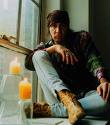
Van Zandt, a fit-looking 52 year old, has kicked off his leather jandals, is sipping water and speaking about his great passion. And it isn't The Sopranos or the E Street Band.
"They are both hobbies," he laughs but is, like Silvio, menacingly serious.
"The radio show is the job. That's most of my work, 20 hours. I don't even count listening in that. It's in setting up the show, the music clips, the theme and so on. The rest of the stuff I just show up for."
Van Zandt's much acclaimed two hour radio show -- Underground Garage, now syndicated on over 100 radio stations in the States -- is the standard bearer for his mission. He passionately believes, as his eyeballing and lucid argument attest, that since the late 60s American radio has marginalised rock music and we are now, since the death of Nirvana's Kurt Cobain, in a ruthlessly marketed pop era. And while in Sydney he tries to locate Harry Vanda of the 60s band the Easybeats and also buys up new garageband CDs. The conversation naturally enough starts with 60s garageband rock.
It's amazing how much stuff is still coming out from those garage bands who were around in the 60s. Wouldn't you have thought that everything that was recorded in 1965 would have been discovered and reissued by now? Yet it still comes.
Not [surprising] to me, when you change countries. But this particular part of the world, I think more than any other . . . You know, at this point I know almost everything that is going, and it's a lot. Certain cities like Detroit is just incredible and Texas a lot of stuff is coming out of. But Australia and New Zealand are still undiscovered and have some great things.
I think that might be particularly true in New Zealand because we were very remote but, you'll appreciate this, radio was very different and when I was growing up it would go from the Supremes to Wilson Pickett to the Stones, the Pretty Things and the Downliners Sect. So you grew up hearing everything.
We had a similar thing before FM with AM which was the great common ground. But that gradually changed and by the 70s it was over. But even when FM first started the rock stations were a little bit looser. But at a certain point around 68 or 69, a year or two after FM started, they started to divide and if you had a hit single they wouldn't play it. At that point things started to go wrong. (laughs)
So what my [radio] show does is combine two things. I'm going back to pre-FM and doing a rock'n'roll house party with [new] rock songs. Although I do play 50s and 60s pop which doesn't get played in America, which is amazing. It's a really weird place where the oldies stations are eliminating the 50s entirely and the classic rock stations are eliminating the 60s, except for a few songs they keep repeating. So I've inherited the 50s and 60s, and thank you very much.So I use mostly the 60s as my main thing but then I'm the only one in America right now playing the Ramones or the Clash. It's frightening.
I'm not kidding. In a few months I could be the only guy playing the Beatles except for a couple of oldies stations.
And they generally play the same few hits I've noticed. It's the same in New Zealand on classic hits' playlists.
Yeah, I'm certainly the only one playing the album stuff. I play the early Stones albums, the first five Kinks albums, the first three Who albums and so on.
And you've also found an audience.
It's amazing, we are doubling and tripling the ratings every single place we're played.
Which shows you there is a hunger -- or at least a curiosity -- about this?
At this point, after a year, we have to say it's more than curiosity. At first people would say they are tuning in to hear me because of whatever celebrity I have. I said, 'No it's not, that might last for a day or a show or two but the music speaks for itself'. You put this many cool songs in a row and its undeniable. The thing that blows people's minds is I am combining what would be in America four or five or six different formats. Here it's maybe not as formatted, but you will be. (laughs)
Right now it's probably at least three formats here, but six in America where it's so narrowly defined now. My whole point is Eddie Cochran and Pelle Almqvist (of the Hives) are the same guy, just 50 years later. There's a connection there that's quite obvious to me, I just play everything in between. I call it garage rock but it's also the roots of garage I guess with the 50s stuff. And there are the offshoots of garage like the surfer psychedelic stuff. And mostly the show is about the 50 new bands I played this year. That's 50, five-zero.
That's an amazing number of new bands.
But about seven of them now are on major labels, and that's a very important thing because that's where the money is. [The labels] spend so much to sign these bands but it's, 'What are you going to do with them?' That's the question -- because I'm the only one playing them, so that ain't gonna work for you. (laughs)
So when you start spending the major label money -- and I'm sure the bands will -- that's got to be a good thing. Because that money is going to go into regular radio and there's going to have to be some kind of change.
Do you think any of these definitive article bands, any band with "the" in their name, seem to be going off? The Strokes didn't make it as big as their publicity would suggest. The press was enormous but they didn't sell as many records as you might have thought.
They certainly sold what they should have, whether people want to over-hype it is up to them. The truth of the matter is, and it's a very strange thing, what's so weird is who broke through this year: the Stokes, the Vines, the Hives and the White Stripes. I am advocates of all of them and played all four of them, probably the only one to play them on mainstream radio. But of my 50 bands I gotta say they are probably four of the least commercially accessible groups I play. It's great that they made it and I love 'em all, but I've got 45 bands that are more commercial than they are. So what does this mean? The others have got a real shot -- if we can get the infrastructure together. And that's the question.
The old infrastructure has gone and what's left is so loaded and doesn't support this sort of thing anymore. This is why no one can believe I got on so many stations, because the infrastructure begins with radio.I went to the biggest radio syndicators in America [and they said] 'We can't get rock'n'roll on radio any more but maybe with you, with whatever celebrity you have, we might get you 10 stations if we pull some favours'.
But the audience has come and been driven by something else.
Yeah, at first it was kind of a fun thing but then I got mad. Like, 'What do you mean you can't hear rock'n'roll on the radio anymore?' I knew I wasn't hearing my favourite songs on the radio anymore but the truth is I probably never did to a large extent.
I don't think I've ever heard [the Electric Prunes'] Too Much to Dream Last Night since 1968. It's not on classic hits radio yet it's a classic hit.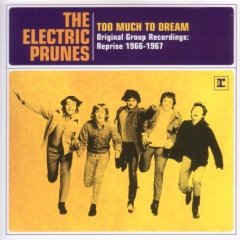
Right. And there's 300 of those if we actually thought about it. My playlist now is over 1100 songs, and I've got to pick 25 every week. And the playlist gets bigger every week.
You talk about something on your website which confuses me. I understand the argument that rock is dead and we live in a pop age, an era of manufactured music. I'm wondering why you picked the death of Kurt Cobain as the end of the rock period which started in 65. Was that literal or symbolic?
I really wasn't meaning to be too academic about it, but it seemed to m . . . This is a little bit from the outside because I recognised that whole [grunge] movement and appreciated it, but wasn't a part of it and didn't relate to it particularly. I like the Foo Fighters better than Nirvana, okay? It just didn't particularly communicate to me but that's not important, I can recognise the importance of it. It seemed to me that this is largely symbolic, that somewhere around Nirvana was the last time it seemed like the masses, people who really loved music in significant numbers culturally, that was the last time they made an emotional investment in somebody.
After that everybody seemed to say, 'That's it, we're done'. That was the last gasp at what had started 30 years earlier with [Bob Dylan's] Like A Rolling Stonenf. I heard a symbolic, collective sigh of 'We're finished, we're moving on to other thing and we're not going to make music an important part of our lives anymore'.
For kids it isn't really though is it? We are old enough to remember that when Shindig and Hullaballoo came on television [in the 60s] you actually had to make the effort to go and watch your half hour allocation of this rock'n'roll every week. Nowadays there are channels of this music stuff on television, just one part of the cultural wallpaper.
Yeah, that's the problem.
And music is not actually that important because kids have Playstation, other things to do, they go to the mall and hang out. Nothing wrong with that, but the point is that music isn't there for them in the same way.
Right, and I think that's when it happened because [Nirvana] were enormously successful, beyond probably where they should have been. I remember a record company guy who was with them at the time, he was a friend of mine, an acquaintance, and he took credit for their success. But when I watched that, it was a total accident. But he told me, 'We're going to go top 40 with it' and I said 'Gettaout here, are you kidding me?'
But they did (laughs) If you listen to it now it's absurd that Smells Like Teen Spirit was a hit single. So they were very big across that spectrum of music people and casual listeners. Those artistically inclined to the most casual, follow-the-trend type person were all into them. I don't recall that happening since and I'm not sure it will for a while, if ever. So in that sense it felt like the end of something. Right around that moment, things changed and we went full-fledged into a pop era and all the rules changed.
Also it was easy to manufacture and market pop. Record companies changed and merged so you had Time-AOL-Warners so it was not only easy to manufacture pop acts but cross-market them as well.
Yeah. They figured out a way to have three homogenised genres which they can easily manipulate, sell and replace: hard rock, hip-hop and pop. They all sell, they all are -- with exceptions obviously -- pretty homogenised, and one guy discovers the next guy and signs him and produces him. It's an interesting factory. That's the world as we know it in America. To change that? I'm a fool for even attempting it. The reason I attempted it at all is because I can (laughs) and I don't care about it. I don't have to make a living from it or depend on it. I can just get pissed off and say,'I'm not taking no for an answer, I'm going to get this thing on the radio'.
Maybe it's just me being old fashioned in the sense of thinking music is actually important, but be that as it may we have at least one generation of kids, maybe two, who haven't heard rock'n'roll. And I can't live with that. I refuse to live with that. I don't feel we've fulfilled the obligation of our generation if we are going to let it die just like that.
You know, if someone came and eavesdropped here now they might say, 'There are two old guys reminiscing about the good old days.'
They might say that, but I'm playing five new bands a week, which is more than anybody in America. Nobody does that. Nobody. Alternative, modern rock, you name the format and they aren't playing as much new music as I am. And that's what my show is all about, it's all about the new bands. The other 20 songs I play is a context for the new bands. And yeah, they are very cool songs and are a lot of fun to listen to and people who hear them for the first time love them because they are truly timeless, and a lot of the garage stuff like the Electric Prunes you mentioned was freaky then and it's freaky now. It didn't fit then either (laughs)
That's why when a 13 year old kid hears it now they think it's cool. We may look like and sound like old guys reminiscing but I'm telling you right now, their thing is not to play anything new if they can get away with it. Classic rock won't play classic rock artists when they put out a new record! Bruce [Springsteen] got played for about two months with The Rising. Not been played before, not been played since, I'm probably the only guy in America who plays Bruce Springsteen. 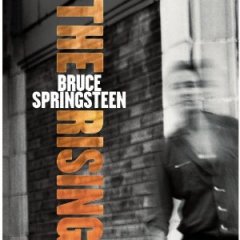
Of course they played the new album when it came out, but there are not many stations which play the older stuff. In his case he fell out of favour with the classic rock format. Of course there are a couple of strong cities, but he's not a staple of classic rock anymore. And new music is discouraged. Classic rock stations are my big discussion with classic rock people because rock is a living breathing animal and has to move forward and continue to be fed.
And if it loses its past it ceases to exist?
Yes, and vice versa. You cut off the future and it starts to diminish the past.
As if it were an aberration.
Yeah, it's hard to convince people of that but I know its true. I don't mind being a lone voice because I know I'm right! (laughs) I'm playing bands that have fantastic stuff. I'm the only one playing it. Does it worry me? No. I know I'm right. (laughs)
I want to shift subjects and talk about one of your other careers. My understanding is that The Sopranos' new season started filming this coming week while you are still on tour. I can see that you pre-record the radio shows but ….
It's an on-going thing. I can do three weeks of shows tomorrow in a studio here. I fit things in around the tour which tends to be the least moveable thing. I don't have that big a part in The Sopranos that it's going to matter, and they are nice enough to fit my scenes in on days off.
So on days off you go do the day job and take time out from the Springsteen night shift?
Yeah, but they are both hobbies, the radio show is the job. That's most of my work, 20 hours a week for that. I don't even count listening in that. It's in setting up the show, the music clips, the theme and so on. The rest of the stuff I just show up for.
So your commitment to The Sopranos is what?
If I was home [in New York City] and not doing anything but The Sopranos. I'd work two or three days a week. This year it's going to be tough, tougher than usual because we are in Europe. So they may film a couple of scenes with me in a telephone booth by myself and they'll stick in a show, or I'll probably miss the show.
It has been noticeable that sometimes you aren't in it for a while - and we miss Silvio.
Yeah, but that'll happen even when I'm home. It's not that big a factor.
Do you have any significant say in the development of the character, do you have a long arc?
We talk about that stuff and if they sent me somewhere I didn't want to go I'd certainly discuss it, but it hasn't happened yet. He's just a minor character which I wrote a whole biography on in my head. I have an extensive knowledge of this guy and I share that with the writers, but ultimately it's where they want to go with it.
One of the things about that character -- and this is why I brought it up and mentioned us old guys sitting round talking like this -- is he is a character who is nostalgic and even sentimental. He thinks things were better back then. Like you.
That's right. That's the only thing we have in common. (laughs) I did conceive the character and he wasn't in the original show. He developed from a treatment of mine: an independent hitman, retired and running a club. But it was a nostalgia type of club. It was set in the modern day but he was going to have 40s type big bands and comedians and dancing girls like that old Copacabana entertainment world. He was a guy who did not relate to the modern world -- but they couldn't afford that so it turned into a strip club. So everybody can thank me for that. (laughs)
When this came up you were busy?
I was not busy. I hadn't worked for seven years.
Then the question is: this comes up and within a few months Bruce calls and, as Michael says in The Godfather, 'They pull me back in'.
(laughs) Yeah, it was the most extraordinary thing. I couldn't believe it. I didn't do anything for seven years, then two things.
Tell me about Renegade Nation, it's an alternative voice?

It's just the company that does whatever I'm doing at the time and right now it's mostly dedicated to the radio show. That's how most of the time is spent.
You put a lot of information on the website and it's very much about your personal journey and your discovery of politics and music.
You mean the essays? We were doing questions and answers for a while too and you try to stay in touch with people so whatever audience you have you try to take wherever you are going. When The Sopranos started it was a completely different audience form Bruce Springsteen's audience, but at a certain point you could feel them merge. You would hope that all your audiences for whatever you are doing would merge and make whatever you are doing stronger because people see where you are going on the journey, and it makes you stronger because they come along with you.
Every couple of years I do something different and you are not going to take everyone with you, but you certainly bring some and add new ones, and lose some. The new ones tend to take a look at what you've done in your life.
I'm guessing because of your appearance, if nothing else, most people who watched The Sopranos didn't know it was you, the guy from the E Street band.
Yeah, because I really made a point to transform myself as much as possible physically.
Well, it worked.
Oh, it did. (laughs) And it works for me because I had to walk out of that trailer and act with a bunch of really good actors.
Once you get those clothes on and that hat of hair on your head
I look in the mirror and see Silvio. I figured if I could see him I could be him. How people do it looking like they normally look? That's tough.
Did you base Silvio on people you knew growing up?
Not necessarily people you knew but you saw these guys around. Whether they were the real thing or not, you don't know. But I read all the books and it was everything I was interested in.
A lot of young boys want to be cowboys then I think they gradate into the mob thing because it's better suits and you get women.
I think they both are a very similar part of Americana and maybe there's a continuation, you start as a cowboy and end up as a mob guy. But we mostly associate cowboys with being a loner than a gangster who is part of a mob, but that rebelliousness and making your own rules sort of thing is very much an American thing.
And a rock'n'roll thing.
Oh yeah, but maybe even an Australian and New Zealand-type thing too. The countries are born from rebellion and so rebelliousness is built in from day one. It continues, often symbolically, but you ask, why do audiences continue to love this thing, even though they would never do it? Hopefully. (Laughs)
People are very tele-literate so when a show like this or Hill Street Blues comes along people can see the quality, the cleverness of the script and so on.
It's true and we do tend to take it for granted a bit when you are in it. But obviously the impact is a big thing in America because it's cable which means we are on in only a third of the homes. The language you know. The hypocrisy in America with language and violence, and sex is beyond belief. We have much more violence on television than sex. Now that's not true here or in Europe or anywhere in the civilised world. That's why cable was invented and that's why it's flourishing. The audience is fragmenting and it's not like the old days when three big networks ruled, there are eight or tn channels now competing.
Last couple of things: you've got an E Street tour on, there is the radio show, The Sopranos and so on. You're a busy man so this might be a silly question, are you going to get back into production again? There must be people out there you'd like to get in a studio with.
Yeah, it's a frustrating moment right now, as funny as that sounds. Now that I've got the door open a little bit for this music, which everyone said was impossible, I've got a hundred ideas of things to do to really make it meaningful. I would love to go back into production, maybe write songs for some people. Maybe have a record company for the first time which I never really considered. But now I want one because I'm seeing dozens of bands which no one is interested in and I know are better than what they are signing. I want to turn my radio show into a tv show and I know exactly what that would look and feel like.
You can get access to all those old Shindig clips?
It would be like Shindig and Hullaballoo because nobody has seen that, except old people like you. (laughs)
And you.
(laughs) Oh no, those of us who are not as old as you and have never seen Shindig and Hullaballoo would think it was very exciting to see. The thing with my show which gets emphasised is if you listen to two hours I will sometimes get serious about something, but mostly it's fun. I didn't consciously set out to do that but that's just the nature of these songs, great songs which are mostly the essence of rock'n'roll and that means two or two-and-a-half minute songs. It's fun, with substance.
I guess it's called entertainment for a reason.
Yeah, but I didn't realise it at the time. But you look around and in those three genres that are allowed -- hard rock, hip-hop and pop -- and they're not fun. They are all taking themselves very seriously. Britney Spears wants to be taken seriously? Obviously the art form allows it to be serious every now and again, like with The Rising which was a rare use of the art form. But for the most part it's not particularly an era where the stuff that's being created needs to be taken that seriously. It's not that profound.
But you made very serious music on your albums which were political and questioning?
Yeah, but that was me not particularly saying,'I'm making a career of this'. It was a very personal thing where I was learning about myself. Were I to make a record now, and I hope I do make one more at some point, I want to make one definitive garage rock record. After listening to nothing but [garage band rock] for the last four years I know I can make a good one. So another album would be somewhat less serious because those others were about me learning about myself. I tried to make them as entertaining as I could musically, but that wasn't a mainstream endeavour and wasn't meant to be. Which looking back might have been silly or naive on my part.
But look at the mainstream stuff now and you are measured by how many bullet holes you have in you.
[Rapper] 50 Cent has nine.
And that's why he's the biggest thing in the world, those nine reasons. I'm sure the guy has talent, but that's his calling card. It's not like, 'What bars did you grow up playing in?' So when people hear my show they think, 'Wow, I just had a great time for two hours'. That just doesn't happen on radio. And when people come to the [Springsteen] show, as serious as a lot of our stuff is, by the end you will have had quite a range of emotions and one of which is you had fun (laughs) And that's increasingly rare.
You look around and think, 'Where's the fun?' We really all just got into it at some point because it is fun. We were probably freaks and misfits who didn't fit in most places but it was fun and inspirational and motivational., That's what I find when I listen to my own radio show. These songs inspire me.
This transcript of Steven Van Zandt talking to Graham Reid in Sydney on Friday March 21 2003, the afternoon of the Springsteen/E Street Band concert, first appeared on the New Zealand Herald website www.nzherald.co.nz
Information on Steven Van Zandt's radio programme can found at www.littlesteven.com

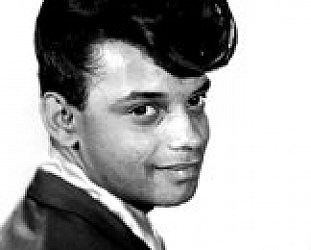
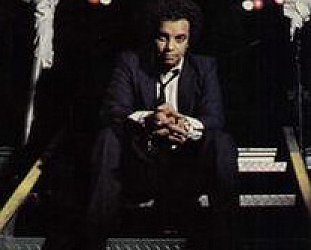
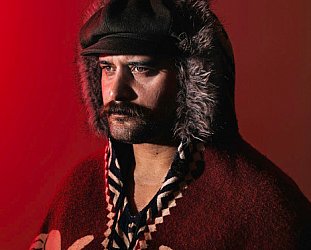

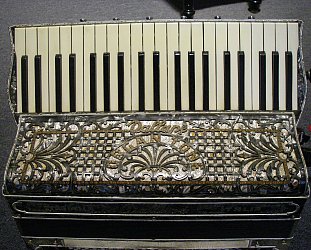
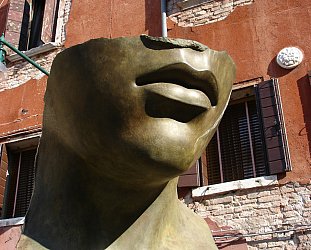
post a comment